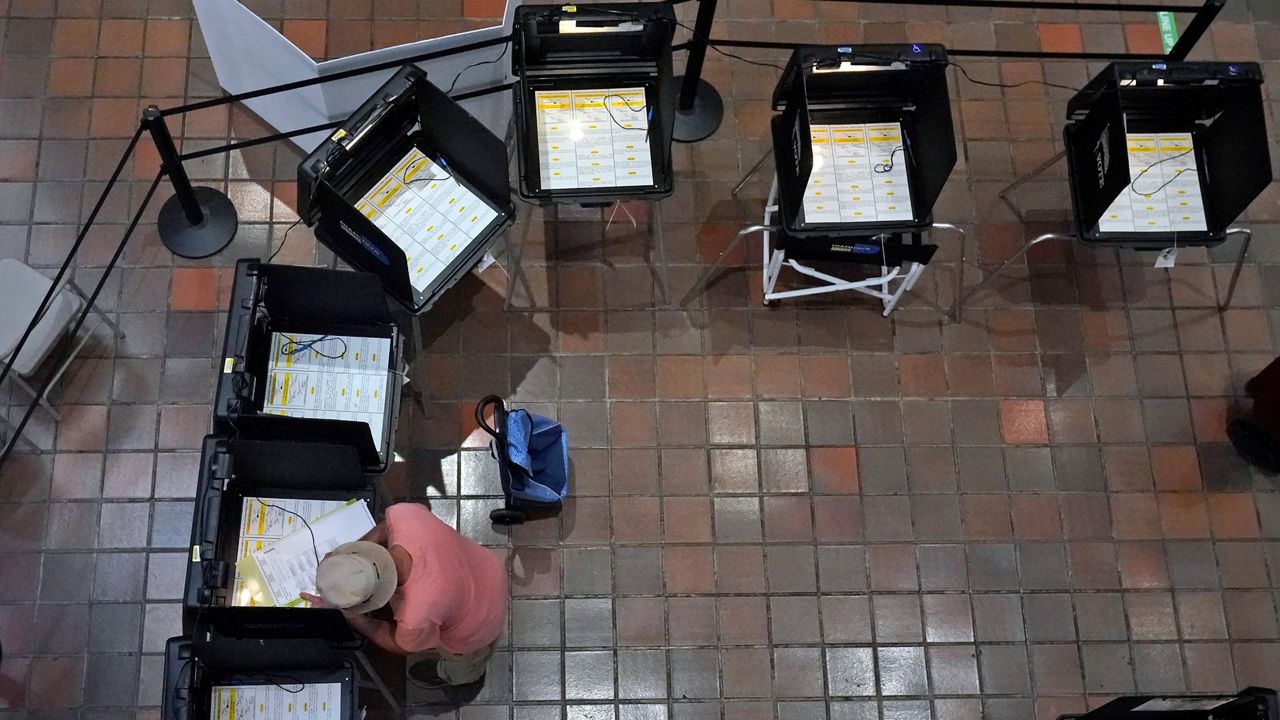MADISON, Wis. (AP) — The Wisconsin Election Commission on Wednesday started the process of reviewing the rules for election observers, an issue that’s drawn attention and concern as Democrats and Republicans alike aggressively recruit partisan watchers to ensure election workers adhere to the law this November.
The unprecedented recruitment efforts are the result of heightened election skepticism and have some local clerks worried about safety at the polls, especially as reports of intimidating behavior from partisan observers have popped up across the country since 2020.
The elections commission voted 5-1 Wednesday to send a scope statement to Democratic Gov. Tony Evers outlining their intent, the first step in a lengthy process that could change how election observers monitor polls. If approved by the governor, the statement would be opened up for public comment.
Any new rules will not be in effect ahead of the November election, and the entire process will likely take one to two years, according to Brandon Hunzicker, an attorney for the commission.
The statement approved on a bipartisan vote Wednesday gives broad outlines for what the commission will consider if it receives the governor’s approval, including reviews of how observers should interact with voters and poll workers, how election workers may restrict observers’ access and what qualifies as disruptive behavior from an observer.
The only person to vote against the proposal, Republican Commissioner Robert Spindell, said he was concerned that the scope statement lacked specifics. “I see no reason to rush,” he said, citing concerns he’s heard from observers who don’t want rule revisions to restrict their access.
Meanwhile, commission Chairperson Don Millis said he expects to see record numbers of election observers this year.
The election commission also voted Wednesday to again send postcards to voters who request absentee ballots to addresses other than those listed on their records. In August, after a Racine man admitted to fraudulently requesting absentee ballots to his home by using the personal information of elected officials and other voters, the commission sent out postcards to verify that such fraud hadn’t occurred more broadly. None of the nearly 4,000 voters who received the notifications responded to say that they hadn’t requested an absentee ballot.
Commissioner Ann Jacobs, a Democrat, called repeating that process “theatre” designed to reassure voters that the state’s voter system works.
“We’re doing this to make people feel better while knowing that our system is in a really good place,” she said.



